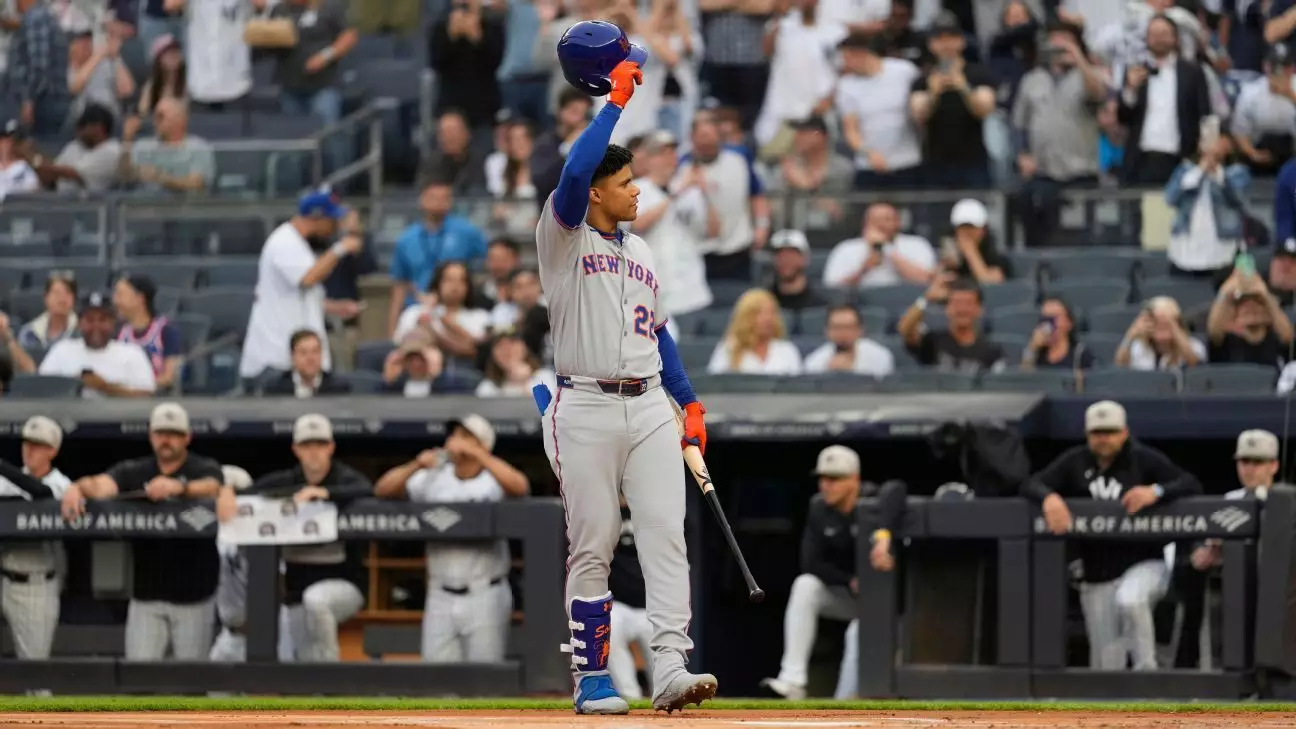As the dust settles on yet another electrifying Subway Series, one thing remains abundantly clear: Juan Soto’s highly anticipated return to Yankee Stadium was fraught with emotional highs and lows. Suiting up as a member of the New York Mets, the young superstar faced a deluge of boos and taunts from a fiercely passionate fanbase who felt spurned by his offseason decision. For Soto, who has recently inked a jaw-dropping $765 million contract—likely to be one of the most scrutinized in North American sports history—the stakes were high, both on and off the field.
Soto’s remarks after the game reveal his awareness of the weight of fan sentiment: “I was ready for it. They’re really passionate fans and they’re a little hurt.” This shows a commendable level of emotional intelligence in an athlete so young. Recognizing the fans’ attachment not only to the team but to the players themselves reflects a maturity that, frankly, is often lacking in stars of his stature.
In the Eye of the Storm
From the moment he stepped onto the field, the intensity was palpable. Soto, prepared for the inevitable backlash, took an interesting approach to the jeering. Instead of adopting a defensive or dismissive stance, he opted for humor, tipping his helmet to the crowd and thanking them in a playful manner. This was a tactical play that not only showcased his personality but also catapulted him into the realm of the fans, if only for a fleeting moment.
“As a player, you can’t let that affect you, but acknowledging it in a light-hearted way was brilliant,” a fellow player commented. Soto’s decision to engage with the crowd shifted the narrative from resentment to a moment of levity. It’s clear that his ability to maintain composure amid hostility adds a layer of intrigue to his persona.
The decision to grin and bear the jeers shows Soto’s savvy understanding of sportsmanship and the age-old relationship between athletes and fans. This acknowledgment of the crowd could be seen as a masterclass in handling pressure while remaining relatable, a crucial skill that will benefit him as he continues to navigate the complexities of playing in New York City.
A Night of Statistical Significance
Unfortunately for Soto and the Mets, the scoreline of 6-2 reflected a night that was, on the whole, lackluster for the former Yankee. While he walked in his first three plate appearances, the absence of solid contact will likely have left him yearning for a more impactful return. His batting average hitting a modest .252 within his first 44 games as a Met illustrates a struggle for him to find a rhythm in a new setting.
Despite this, his manager, Carlos Mendoza, remained optimistic. “Every time he’s at the plate, we feel good,” he stated, underlining the confidence that the organization has in Soto’s abilities. For players of Soto’s caliber, a few quiet games can often be chalked up to the natural ebbs and flows of a demanding Major League schedule.
However, the metric that truly defines Soto’s night extends beyond the box score; it encapsulates his defensive efforts, which were as scrutinized as his offensive contributions. A botched throw on a sacrifice fly exemplified the pressures he is under, but it also served to humanize him—a stark reminder that even the most talented among us falter.
The Fallout and the Future
As the final out was recorded, the cacophony of Bronx cheers and jeers echoed around him, setting the stage for what will become a defining chapter in Soto’s career. Responses from fans will likely shape his future, as will the immediate results of his performance. The psychological toll of playing in such an intensely competitive environment can’t be understated.
“It’s just another game,” Soto stated, a sentiment that will resonate or haunt him in equal measure in the coming days. For fans, though, he remains a figure both revered and reviled—a duality that may define his time in New York. As the Subway Series continues to unfold, one can only speculate how Soto’s evolving legacy will shape the narrative of an already electrifying Major League Baseball season. Ultimately, how he learns from these experiences will be crucial going forward.

